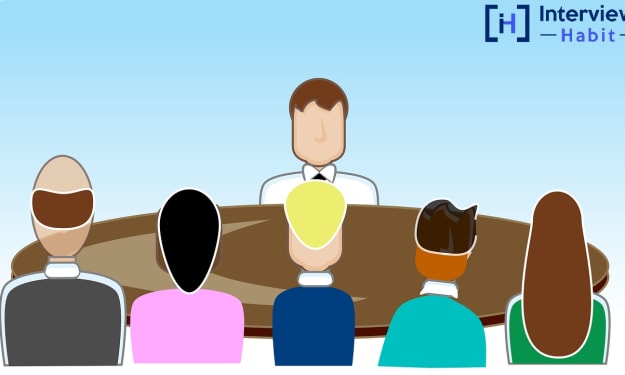Mock Interview Preparation: Mastering the Art of Acing Job Interviews
Welcome to our comprehensive guide on mock interview preparation! In today's competitive job market, standing out from the crowd and impressing potential employers during job interviews is crucial.

Welcome to our comprehensive guide on mock interview preparation! In today's competitive job market, standing out from the crowd and impressing potential employers during job interviews is crucial. Mock interviews provide an excellent opportunity to practice and refine your interviewing skills, boosting your confidence and increasing your chances of securing your dream job. In this article, we will delve into the world of mock interviews, offering valuable insights, expert tips, and strategies to help you excel in your next job interview. So, let's get started on your journey to interview success!
Understanding the Importance of Mock Interviews
Mock interviews are a valuable tool for job seekers to refine their interview skills and gain valuable feedback from experienced professionals. By simulating a real interview scenario, mock interviews help you become more comfortable with the process, allowing you to identify and address any weaknesses or areas of improvement. Repeated practice lets you fine-tune your responses, improve your confidence, and develop a winning interview strategy.
Preparing for a Mock Interview
Proper preparation is essential to make the most out of your mock interview experience. Here are some key steps to follow:
Researching the Company and Position
Before your mock interview, thoroughly research the company and the specific role you are applying for. Familiarize yourself with the company's values, mission, recent achievements, and industry trends. This knowledge will help you tailor your responses to align with the company's goals and demonstrate your genuine interest in the position.
Crafting an Elevator Pitch
Prepare a compelling elevator pitch summarizing your qualifications, achievements, and career goals. This pitch should be no longer than a minute and leave a lasting impression on the interviewer.
Practising Common Interview Questions
Anticipate common interview questions and practice your responses. Rehearse your answers with a friend, family member, or mentor. Pay attention to your tone, body language, and the overall structure of your responses. The more you practice, the more comfortable and confident you will become during the interview.
Building Confidence and Overcoming Nervousness
It's natural to feel nervous before and during an interview, but with the right techniques, you can manage your nerves and exude confidence. Here are some strategies to help you build confidence:
Positive Self-Talk
Replace negative thoughts with positive affirmations. Remind yourself of your achievements, skills, and qualifications. Visualize a successful interview and imagine yourself confidently answering questions.
Deep Breathing Exercises
Practice deep breathing exercises to calm your nerves and reduce anxiety. Take slow, deep breaths, and exhale slowly to relax your body and mind. Deep breathing promotes a sense of calmness and helps you maintain focus during the interview.
Researching the Company and Position
One of the most critical aspects of mock interview preparation is conducting thorough research on the company and the position you are interviewing for. Understanding the company's values, culture, products/services, and recent developments will enable you to tailor your answers to align with the organization's objectives.
Crafting Impressive Responses
Crafting well-thought-out and effective responses is vital to impressing interviewers. Here are some tips to help you formulate impressive answers:
STAR Method
Use the STAR method (Situation, Task, Action, Result) to structure your responses. Start by describing the situation or task, explain your action, and conclude with the positive result or outcome you achieved.
Highlighting Achievements
When answering questions, emphasize your accomplishments and your impact in previous roles. Quantify your achievements with specific numbers or percentages to showcase your abilities effectively.
Mastering Non-Verbal Communication
Your non-verbal cues play a significant role in conveying confidence and professionalism during an interview. Pay attention to the following aspects of non-verbal communication:
Body Language
Maintain an upright posture, make eye contact, and offer a firm handshake. Avoid fidgeting, slouching, or crossing your arms, as these can convey nervousness or disinterest.
Facial Expressions
Smile genuinely and maintain a pleasant expression throughout the interview. Your facial expressions should reflect engagement and enthusiasm.
Handling Common Interview Questions
During mock interviews, you will likely encounter common interview questions. Here are some examples, along with tips on how to answer them:
"Tell me about yourself."
This is often the first question asked in interviews. Provide a concise overview of your professional background, highlighting your key accomplishments, skills, and interests relevant to the position.
"Why are you interested in this role?"
Demonstrate your enthusiasm and interest in the role by aligning the responsibilities and requirements of the position with your career goals and aspirations. Showcase how your skills and experiences make you an ideal candidate for the job.
Addressing Weaknesses and Difficult Questions
Interviewers may inquire about your weaknesses or present challenging questions to assess your ability to handle difficult situations. Here's how to address them effectively:
Acknowledging Weaknesses
When discussing weaknesses, focus on areas for improvement rather than highlighting significant shortcomings. Present a weakness and follow it up with the steps you take to overcome it. This demonstrates self-awareness and a commitment to personal growth.
Handling Difficult Questions
Difficult questions may test your problem-solving abilities or assess your reactions under pressure. Remain calm, take a moment to gather your thoughts, and provide a thoughtful response. It's okay to ask for clarification or more time to consider your answer.
Showcasing Your Skills and Achievements
During a mock interview, showcasing your skills and highlighting your relevant achievements is essential. Here's how to effectively demonstrate your capabilities:
Provide Specific Examples
Support your statements with specific examples from your professional experience. Describe projects you have completed, challenges you have overcome, or initiatives you have led.
Emphasize Transferable Skills
Highlight transferable skills that are relevant to the position you are applying for. Discuss how these skills have contributed to your success in previous roles and how they can be applied to the new job.
Asking Intelligent Questions
Asking thoughtful questions during an interview showcases your interest in the position and helps you gather valuable information. Consider asking questions such as:
"What are the main priorities for this role in the first six months?"
This question demonstrates your proactive nature and allows you to gain insights into the expectations and challenges of the position.
"Can you tell me more about the company culture and the team dynamic?"
Understanding the company culture and team dynamics is crucial to assessing whether you would fit the organization well.
Following Up After the Mock Interview
After completing the mock interview, don't forget the importance of follow-up. Send a thank-you note or email to the interviewer, expressing your appreciation for their time and reiterating your interest in the position. This small gesture can leave a positive impression and set you apart from other candidates.
Conclusion
Mastering the art of mock interview preparation is the key to acing job interviews and landing your dream job. Through diligent research, preparation, and practice, you can confidently navigate the interview process and impress potential employers. Remember to remain calm, be authentic, and showcase your unique skills and qualifications. With the knowledge and strategies shared in this article, you are well on your way to interview success. Good luck!
About the Creator
Rajesh Saini
Helping you to ace the interview! I'm the CEO at Interview Habit, providing mock interviews with industry experts to help you prepare for your next job interview. Let's get you that dream job!






Comments
There are no comments for this story
Be the first to respond and start the conversation.